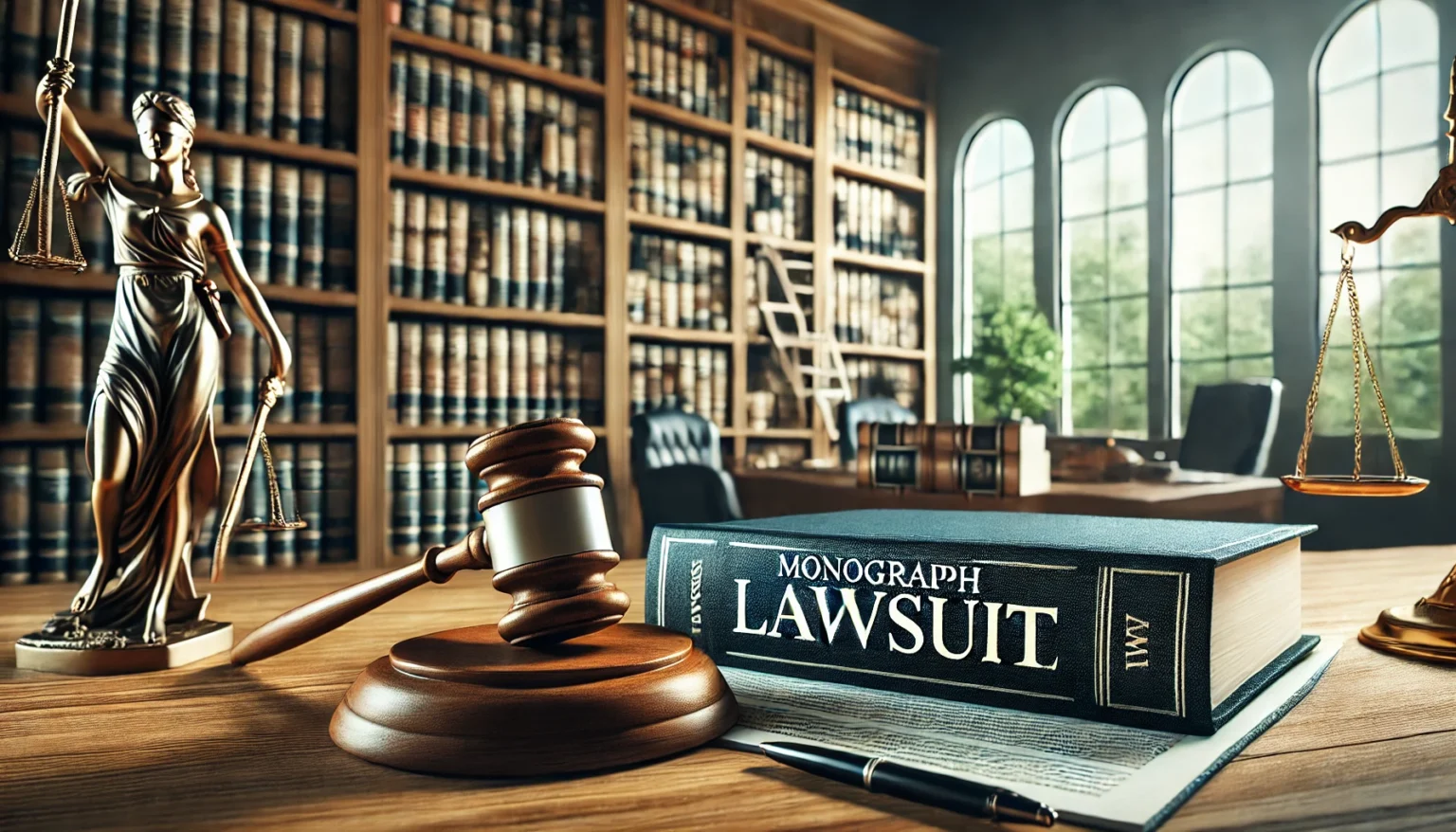A monograph lawsuit typically arises in intellectual property disputes where the ownership, originality, or rights over a specific monograph are contested. Monographs, often detailed written studies on a single subject, can become a source of legal contention, especially when authorship or usage rights are questioned.
Such lawsuits are complex, involving intricate legal principles and the evaluation of evidence to establish claims. They play a critical role in protecting intellectual property rights and ensuring fair acknowledgment of creative or academic contributions.
Understanding the nuances of a monograph lawsuit is essential for authors, publishers, and legal professionals alike, as these cases often set important precedents in copyright and intellectual property law.
Key Legal Principles in Intellectual Property Cases
Understanding intellectual property (IP) law is crucial for safeguarding creative and academic works. Legal principles like copyright, patent, and trademark laws govern ownership and usage rights. These principles ensure that creators can protect their work from unauthorized use or replication.
In IP cases, the doctrine of “fair use” often comes into play, especially for educational or research purposes. It allows limited use of copyrighted works without permission under specific circumstances, balancing public interest and creator rights.
Judges also examine the originality of the work. A piece of writing must be at least somewhat creative and unrepeatable in order to be protected. These considerations often underpin monograph-related disputes.
Historical Significance of Intellectual Property Litigation
Intellectual property litigation has evolved over centuries to protect innovators and creators. Landmark cases have shaped the modern legal framework, fostering innovation by ensuring fair rewards for creators.
In the 20th century, digital transformation brought new challenges, such as disputes over digital copyrights and online piracy. Courts have since adapted to address these emerging issues, ensuring laws remain relevant.
Historical examples for monographs draw attention to the conflict between copyright regulations and academic freedom. Scholars often find themselves navigating these legal complexities when publishing research.
| Year | Case Name | Impact |
| 1984 | Sony Corp. v. Universal | Established “fair use” in technology |
| 2011 | Golan v. Holder | Strengthened copyright protections |
| 2020 | Google v. Oracle | Clarified copyright in software use |
Common Challenges Faced in Legal Disputes
Legal disputes are often mired in challenges, including ambiguous legal interpretations and costly litigation processes. These challenges can deter individuals and small entities from pursuing justice.
One major issue is proving ownership of intellectual property, especially when works have similar themes or formats. In monograph lawsuits, this challenge is magnified due to the detailed nature of such works.
Jurisdictional conflicts also arise, particularly when disputes cross international boundaries. Each country’s IP laws differ, complicating global cases.
The Role of Evidence in Intellectual Property Lawsuits
Evidence is the backbone of any intellectual property lawsuit, including monograph-related cases. It proves a work’s originality, ownership, and unlawful usage.
Key evidence includes registration certificates, drafts, correspondence, or contracts that demonstrate ownership or intent. Witness testimony from collaborators or experts may also be critical.
Digital tools like metadata analysis play an increasing role, particularly for modern monograph lawsuits, helping to authenticate creation dates and usage patterns.
Monograph Lawsuit: Implications and Legal Considerations
A monograph lawsuit often involves disputes over authorship, copyright infringement, or unauthorized use. These cases highlight the importance of clear agreements and proper documentation when creating or publishing monographs.
Legal consequences can be severe, including monetary damages, injunctions, or reputation loss. For researchers and academics, such lawsuits may also have career implications.
Publishers and authors should be aware of copyright registration benefits. Registering a monograph before publication strengthens the case in any future disputes, ensuring better protection.
Strategies for Defending Against Legal Claims
Defending against legal claims requires a proactive approach, including maintaining thorough documentation and evidence. Contracts and agreements should clearly outline ownership and usage rights.
Seeking expert legal counsel early can help prevent escalation. Legal professionals can identify weaknesses in the opposing party’s case and build a strong defense.
Mediation or arbitration may also be viable alternatives to court trials, saving time and resources while offering mutually beneficial resolutions.
Precedent-Setting Monograph Lawsuit Cases
Precedent-setting cases offer invaluable insights into how courts interpret and decide monograph-related disputes. Notable cases have addressed the balance between academic freedom and copyright enforcement.
For instance, cases involving plagiarism accusations often focus on the originality and citation practices within monographs. These rulings shape future litigation and guide academic publishing practices.
Examining these cases helps authors and publishers understand their legal rights and responsibilities, minimizing risks associated with monograph creation.
Future Trends in Intellectual Property Law
Intellectual property law is evolving to address challenges posed by new technologies and globalization. Emerging trends include the integration of AI in IP management and disputes.
Blockchain technology is also being used to verify authorship and track usage, reducing the chances of infringement. This development may significantly impact how monograph lawsuits are handled in the future.
International collaborations are fostering harmonized IP regulations, making it easier to resolve cross-border disputes. These changes will likely reshape the landscape of monograph litigation.
Last Word
A monograph lawsuit serves as a crucial reminder of the importance of intellectual property protection, particularly in academic and research settings. Proper documentation and awareness of legal rights can help mitigate risks.
For authors and publishers, staying informed about copyright laws and taking preventive measures is essential. Early registration, clear agreements, and legal counsel can make a significant difference in avoiding or defending lawsuits.
As the legal landscape evolves, monograph lawsuits will continue to shape the boundaries of copyright law, emphasizing the need for vigilance and adaptability in intellectual property management.








